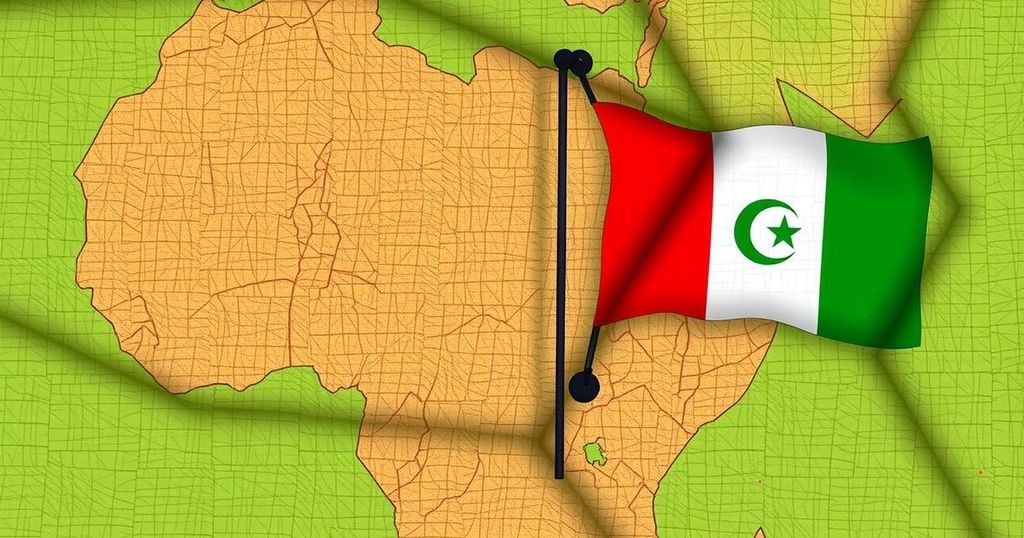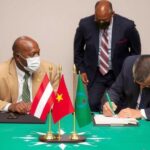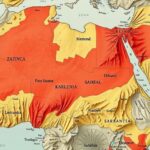Mali, Burkina Faso, and Niger Confirm ECOWAS Withdrawal Amid Rising Tensions
Mali, Burkina Faso, and Niger have confirmed their withdrawal from ECOWAS during an AES meeting in Niamey, citing dissatisfaction with the bloc’s effectiveness and alleged foreign influence. The AES aims to boost regional integration, while ECOWAS faces calls for dialogue regarding the withdrawal. The announcement raises concerns over regional stability and marks a significant shift in West African geopolitics.
The governments of Mali, Burkina Faso, and Niger have officially confirmed their intention to withdraw from the Economic Community of West African States (ECOWAS), citing growing dissatisfaction with the bloc’s influence and its inability to support the fight against terrorism in the region. This announcement occurred during a meeting in Niamey of the Alliance of Sahel States (AES), which was convened to discuss enhancing regional integration among these nations. The foreign ministers participating in the meeting emphasized improving the movement of goods and people as vital to their strategy.
They communicated in a joint statement, “This decision reflects the clear vision of our leaders to strengthen mechanisms that will positively impact our populations.” The three countries have accused ECOWAS of being dominated by foreign interests and have criticized the organization for implementing measures that they deem “illegal and inhumane,” claiming these actions violate ECOWAS’s founding principles.
The withdrawal from ECOWAS, initially suggested in January 2024, exacerbates ongoing tensions and hampers mediation efforts led by Senegalese President Macky Sall. During a recent forum, President Sall advocated for dialogue, cautioning that the formation of AES should collaboratively address security without compromising the unity of ECOWAS, which has historically played a crucial role in the stability of West Africa.
As the situation evolves, ECOWAS Parliament has proposed extending the deadline for withdrawal from January 2025 to allow for further discussions. However, AES participation in this dialogue seems increasingly unlikely. The new alliance among Mali, Niger, and Burkina Faso is also making strides in economic integration, including measures to abolish roaming charges for telecommunications and streamline travel document requirements. Overall, this withdrawal signifies a shift in West African geopolitics, raising concerns over potential regional instability, both economically and politically.
The withdrawal of Mali, Burkina Faso, and Niger from the Economic Community of West African States (ECOWAS) reflects a significant shift in the political landscape of West Africa. ECOWAS has long been perceived as a unifying force in the region, yet these Sahelian nations have voiced increasing discontent, asserting that the organization has failed to address critical issues such as security and terrorism effectively. This situation arises against a backdrop of growing regional integration efforts, as exemplified by the establishment of the Alliance of Sahel States (AES) which seeks to enhance cooperation amongst its members. The geopolitical dynamics are further influenced by allegations of ECOWAS being under foreign control, prompting calls from these nations for greater autonomy and self-determination.
In summary, the decision by Mali, Burkina Faso, and Niger to withdraw from ECOWAS signifies deepening rifts and dissatisfaction within West Africa’s political framework. This development not only calls into question the efficacy of ECOWAS in addressing critical challenges such as terrorism but also highlights the shifting alliances in the region with the formation of AES. As these nations pursue greater autonomy and integration, the potential implications for regional stability and cooperation remain to be seen.
Original Source: www.senenews.com








Post Comment